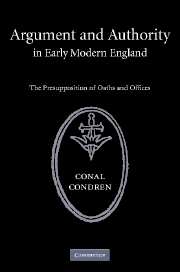Book contents
- Frontmatter
- Contents
- Preface
- Introduction
- Part I The liquid empire of office
- 1 An overview
- 2 Ceremonies of office: The kiss of the tutti-man
- 3 Institutionalised office: a sense of the scavenger
- 4 The vocabulary of office
- 5 Offices of the intellect: player, poet and philosopher
- 6 Soul and conscience
- Part II The authority and insolence of office
- Part III ‘I, A. B.’
- Epilogue
- Bibliography
- Index
2 - Ceremonies of office: The kiss of the tutti-man
from Part I - The liquid empire of office
Published online by Cambridge University Press: 28 October 2009
- Frontmatter
- Contents
- Preface
- Introduction
- Part I The liquid empire of office
- 1 An overview
- 2 Ceremonies of office: The kiss of the tutti-man
- 3 Institutionalised office: a sense of the scavenger
- 4 The vocabulary of office
- 5 Offices of the intellect: player, poet and philosopher
- 6 Soul and conscience
- Part II The authority and insolence of office
- Part III ‘I, A. B.’
- Epilogue
- Bibliography
- Index
Summary
Ceremony keeps up all things.
(John Selden, Table Talk, 1686)This chapter sketches something of the habitus of office beyond institutional form, for the ritualistic or ceremonial was a dimension of activity integral to society. ‘Seremoney’, insisted William Cavendish, ‘though itt is nothing in itt Selfe, yett it doth Every thing.’ All artificial relationships of hierarchy were expressed and affirmed through it: ‘–what is parents & Children, masters & Servants, officers in all kindes, in the Comon wealth, without Seremoney, And order, nothing at all–’. As Selden remarked succinctly, it was ‘like a penny glass to a rich spirit … without it the spirit [is] lost’. But the glass is an unreliable mirror, or model for any separate social structure. This too contemporaries would have appreciated. As Richard Stuart reflected, ceremony was like a ‘dumb shew’; it is the moral that commends it, not the act, but ‘the end of it’. Therein lay the problem: the semiotic presupposition that so sensitised people to symbolic interconnection made it difficult to limit hermeneutic possibility. Reading the ‘end’ of it could be re-encoding to a different point, and so the whole field of the ceremonial could be, as Hobbes wrote of metaphor, equivocal and subject to contention.
And so it remains. Much valuable scholarship has been concentrated on the ‘end’ or function of the ceremonial within a broader political system. For some the ‘end’ was hegemonic containment, for others the opportunity for resistance to that control.
- Type
- Chapter
- Information
- Argument and Authority in Early Modern EnglandThe Presupposition of Oaths and Offices, pp. 36 - 53Publisher: Cambridge University PressPrint publication year: 2006

